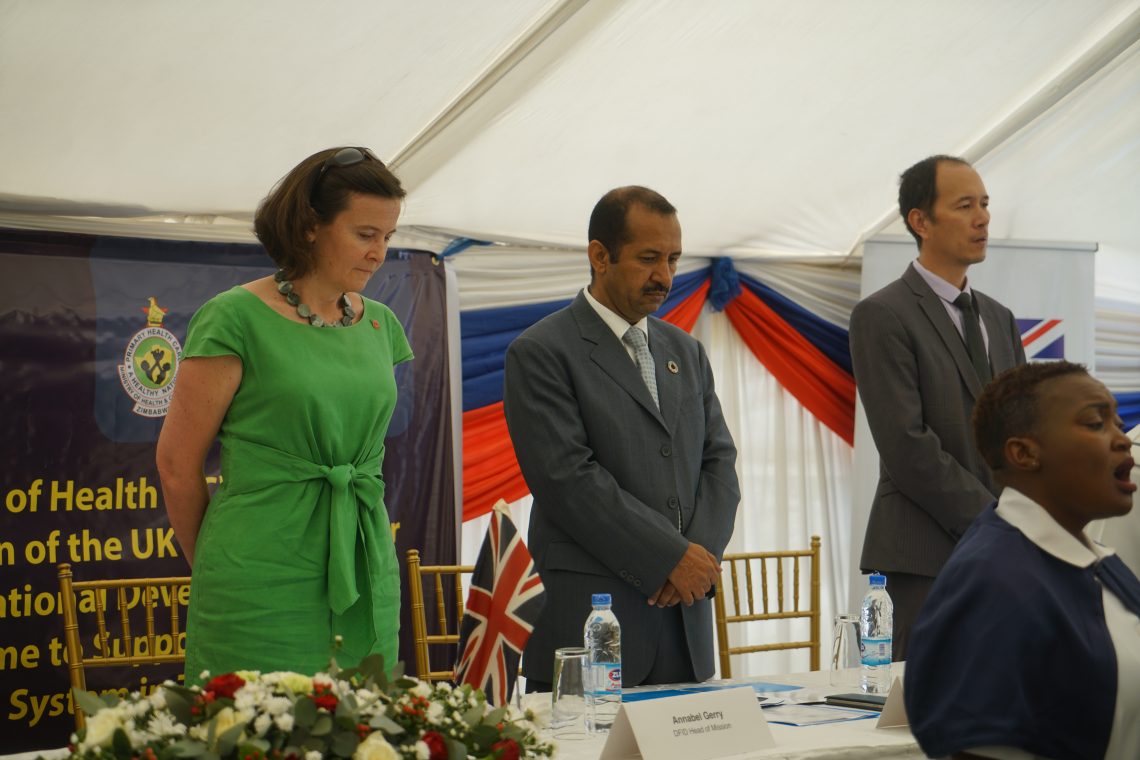By Byron Mutingwende and Patricia Mashiri
In Mbare, Martha Chimwe (not real name) is afraid the 2008-9 cholera outbreak that claimed four of her family members in one week had returned to kill her grandson (nine) who has a running stomach. Martha’s fears are compounded by the reality that in Matapi Flats – her home of 30 years, there has not been water for the past four months.
Mbare has been the epicentre of water-borne diseases like cholera, diarrhoea and typhoid. Uncollected garbage, burst sewer pipes and blocked drains are the order of the day. In October, there was a repeat of the cholera outbreak. Typhoid is spread through contaminated food or water. Symptoms include lasting high fevers, weakness, stomach pains, headache and loss of appetite.
Michael Chideme, the spokesperson of the Harare City Council confirmed the typhoid outbreak and blamed it on water shortages, sewer spillages and uncollected garbage in the city.
“It is confirmed that there is typhoid outbreak in Mbare and we are working towards the improvement of Matapi residential area so as to avoid such health risks in the future,” Chideme said, at the time.
Mbare has been known for collapsing sanitation systems, particularly in the urban areas, limited access to healthcare and insufficient healthcare infrastructure are blamed for the recurrent outbreaks of diseases in the Southern African country.
“We are exposed to waste everyday and our lives are in danger and the council is not showing any efforts in improving sanitation facilities,” Chimwe said.
The Matapi flats in Mbare are supposed to accommodate at least 2000 people but at the moment they have more than 20 000 people which are living with poor sanitation facilities.
“We are crowded in the small flats which are supposed to accommodate fewer people but because of poverty we are living in the small apartments which causes easy transmission of diseases among people,” Chimwe said.
Mbare is the oldest high-density residential area in Harare and the facilities used there are now too old. The City Council has been failing to address the poor sanitation issues, including water shortages, resulting in the outbreak of cholera and typhoid.
At least six people are reported to have succumbed to typhoid and other related diseases since 2016 in Harare from some 83 cases recorded.
It was reported on 9 November 2017 that through the Department for International Development (DFID), the UK Government is making available GBP 65.2 million (US$ 82.1 million) to improve sexual, reproductive, health, and nutrition services for women, adolescents, and children.
The majority of the grant is meant to finance health interventions implemented under the Health Development Fund while US$ 2.2 million will be for strengthening Zimbabwe’s capacity to prevent, detect and respond to disease outbreaks.
“Through the UK’s support, the availability of basic medicines in rural health centres has risen from 12 per cent to over 90 per cent and we have seen an increase in the contraceptive prevalence rate from 57 per cent to 66 per cent, putting Zimbabwe above the global average and over double the continental average,” said DFID Head of Mission in Zimbabwe Annabel Gerry. “These are impressive numbers – and it is important to remember that behind every statistic is a life changed and in many cases a life saved. Through this programme, DFID continues to support the recovery of the health system and of health services across the country.”
The Programme builds on the progress Zimbabwe has made in reducing maternal and child mortality, expanding full immunization coverage, increasing the proportion of births attended to by skilled health personnel, and increasing access to sexual reproductive health services for women and girls, such as fistula repair surgery, cervical cancer screening and family planning.
“The country remains focused on achieving the highest standard of health care and quality of life possible for all its citizens,” said Deputy Minister of Health and Child Care Hon. Aldrin Musiiwa. “We are cognizant of the fact that on our own, we will not be able to achieve this mission but rather, a lot can be achieved through strong partnerships and support from all health partners and involvement of all stakeholders.”
The UK has been a long-term supporter of the health sector in Zimbabwe. This Programme will see the UK continue to support implementation of the National Health Strategy 2016-2020. The Programme will strengthen the health system, improve service delivery through the Health Development Fund (HDF), and support Zimbabwe’s capacity to prevent, detect, and respond to disease outbreaks and epidemics.
“A resilient health system is the bedrock of a country’s development aspirations,” said acting UN Resident Coordinator Dr. Mohamed Ayoya. “Today’s event builds on the important work that has gone into restoring Zimbabwe’s health system. The United Nations in Zimbabwe is delighted to be part of this Programme and pledges its commitment to continue supporting the government to sustain ongoing health programmes and contribute to a more robust and resilient health system.”
